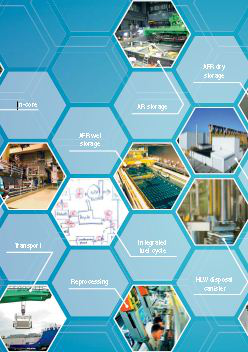Speaker
Mr
Jean-Michel Romary
(AREVA)
Description
The reduction of the volume and radiotoxicity of radioactive waste has been one of the key drivers for the implementation of the French nuclear program. Interactions between the nuclear industry, the administration, the competent authorities and other stakeholders including the civil society has led to a continuous evolution of the industrial facilities, practices, solutions and products to move towards waste minimization.
Bringing a solution to the management of ultimate radioactive waste is clearly a requirement for the sustainable development of nuclear energy whose crucial role in the world’s future energy mix has been confirmed in the past few months by several international organizations.
The first question to be answered concerns the definition of radioactive waste. This notion may be seen as self-evident. It is not. For example, used fuel is considered a High Level Waste in Finland or Sweden, but a recyclable material in countries including China, France, India, Japan, Russia, and the Netherlands. In France, a definition is provided by law to clarify this notion.
AREVA has been designing and implementing solutions for maximizing materials reuse, improving existing waste management routes and thus, mitigating risks, safety being the top priority. Innovation is also at the heart of integrated solutions and routes under development.
This paper will review solutions and processes already implemented. It will practically illustrate how the ever stronger level of interactions between the involved stakeholders has led to an integrated approach connecting consistently nuclear power plants, fuel cycle facilities and final repositories. The long term management of radioactive substances, one of the most important of which being used fuel, lies in defining the best compromise between reduction at source – potential treatment (including characterization, sorting, processing) - recycling – storage and disposal. The efficiency, the completeness and consistency of the proposed solutions with today’s and tomorrow’s global framework will also be analyzed.
An important lesson learned from the experience in countries having developed a nuclear program for decades is that the early implementation of comprehensive solutions for the long term management of used fuel and radioactive waste concomitantly with the reactor fleet deployment is a prerequisite to sustainability. The road ahead for such an implementation is long and full of challenges. This paper will aim at analyzing how countries which are considering the construction of their first nuclear power plant or the expansion of a recently launched nuclear power program may draw from this experience.
Country/ int. organization
FRANCE/AREVA
Author
Mr
Jean-Michel Romary
(AREVA)
Co-author
Mr
Jean-Michel GRYGIEL
(AREVA)

